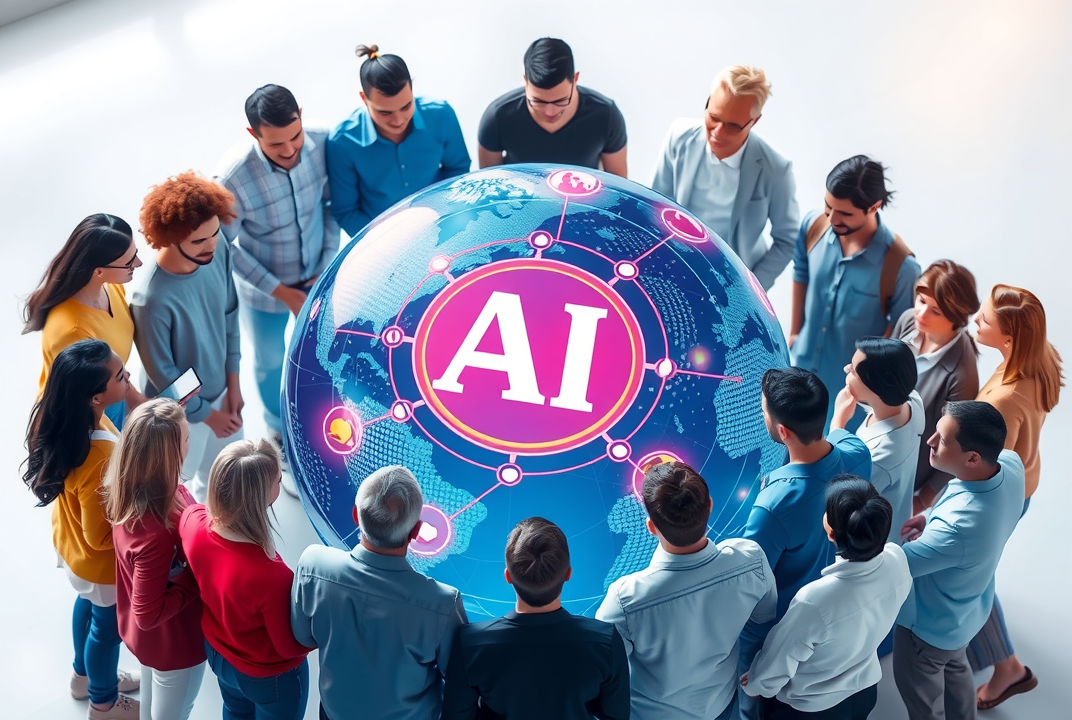AI for Social Good: Transformative Projects Impacting Lives

Introduction
Artificial Intelligence (AI) is no longer just a futuristic concept—it's here, changing lives in real-world scenarios. Imagine having the power of machines used to solve some of the world's most pressing issues like healthcare disparities, environmental changes, and educational access. This reality is currently unfolding through various AI projects focused on social good. These initiatives are paving the way for impactful changes across the globe.
In this article, we will explore how AI is leveraged for social good. Readers will discover innovative projects, understand their significance, and learn about the ethical considerations involved. We'll also highlight the diverse ways these projects are making a difference in society.
AI Projects for Health and Well-being
AI technology has shown promising potential in revolutionizing health care. For example, AI algorithms are now used to diagnose diseases like cancer more accurately and faster. In low-income countries where medical resources are scarce, AI-powered diagnostic tools are proving to be lifesavers.
-
AI in Diagnostics: AI systems like IBM's Watson Health are assisting doctors by offering evidence-based treatment options. These systems analyze vast data sets to identify patterns often missed by human eyes.
-
Predictive Healthcare: AI tools can predict patient deteriorations, enabling timely medical interventions. Wearable AI devices track health metrics and alert caretakers to potential issues.
These advancements aim not just to treat but to predict and prevent health problems, ensuring well-being on a broader scale.
Environmental AI Innovations
Climate change is a pressing issue that needs innovative interventions. AI is stepping in to assist in tracking environmental changes and fostering sustainable practices.
-
Wildlife Protection: AI-driven drones are used for monitoring wildlife, ensuring habitats remain undisturbed, and poaching is minimized.
-
Energy Efficiency: In urban areas, AI helps optimize energy consumption by adjusting systems dynamically according to usage patterns, reducing unnecessary waste.
These projects show how environmental challenges can be tackled with the right technology, promoting a sustainable future.
Education and Learning
Education is a foundation of societal growth and AI is playing a significant role in making it accessible to all.
-
Personalized Learning: AI systems can adapt learning experiences based on individual needs, making education more engaging and effective.
-
Language Translation: AI-powered translators are breaking down language barriers, allowing access to educational content worldwide.
By facilitating knowledge transfer, AI helps bridge divides and nurtures a more inclusive learning atmosphere.
Ethical Considerations
While AI is beneficial, ethical considerations must ensure its positive impact. Developers must prioritize transparency and accountability.
-
Bias Mitigation: AI systems are only as good as the data they are trained on. To avoid reinforcing existing biases, datasets must be inclusive and diverse.
-
Privacy Concerns: In leveraging AI, especially in sensitive fields like healthcare, safeguarding personal data is crucial.
Addressing these concerns ensures AI projects contribute to social good responsibly.
Conclusion
From healthcare to environmental conservation and education, AI for social good is demonstrating transformative abilities. These projects not only resolve current challenges but also offer hopeful prospects for future societal improvements.
For those eager to engage further, consider supporting organizations pursuing AI for good, or exploring educational resources on AI and ethics. By embracing responsible innovation, we can harness AI's full potential to serve humanity.